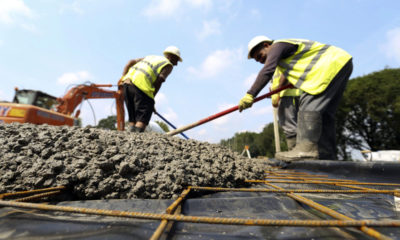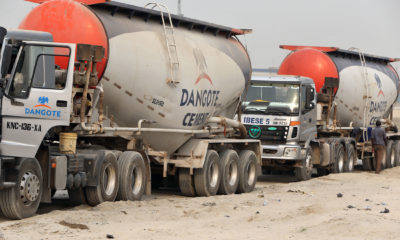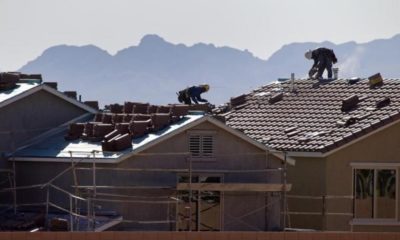Nigeria’s real estate and construction sectors have emerged as resilient pillars of economic growth, contributing a staggering N93.14tn to the country’s Gross Domestic Product (GDP).
Despite facing headwinds of rising interest rates and tightening financial conditions, both sectors have demonstrated remarkable growth, proving their significance in job creation and economic prosperity.
According to an in-depth analysis of the GDP report released by the National Bureau of Statistics between 2019 and 2022, the real estate and construction industries have been able to secure loans totaling N21.89tn from deposit money banks. This influx of credit facilities has facilitated infrastructural activities and fueled substantial investments, propelling these sectors to new heights.
However, the recent increase in the benchmark interest rate by the Central Bank of Nigeria to 18.5 percent in May 2023 has raised concerns among industry experts. The move was part of a strategy to curb inflation and mop up liquidity, but it has led to higher interest rates on loans, potentially impacting housing development negatively.
Toye Eniola, the Executive Secretary of the Association of Housing Corporation of Nigeria, said “Higher interest rates on loans would hamper housing development.”
He pointed out that development loans require patient funds, and obtaining loans at above 20 percent could deter lucrative projects and lead to a surge in abandoned constructions.
The International Monetary Fund (IMF) echoed these concerns, warning that tightening financial conditions, including interest rate hikes, might impact commercial property prices and reduce investments in the sector. Such stringent conditions could also indirectly slow economic activity and reduce demand for commercial properties, including shops, restaurants, and industrial buildings.
Despite these challenges, the real estate and construction sectors have shown resilience and substantial growth. Between January 2019 and December 2022, borrowing by real estate firms surged by an impressive 44.4 percent from N15.16tn to N21.89tn.
Moreover, infrastructural activities in the housing and construction sector witnessed a remarkable growth rate of 59.6 per cent during the same period, surging from N18.13tn in 2019 to N28.94tn in 2022.
This exponential growth showcases the potential of these sectors to drive economic expansion and create job opportunities, further underlining the importance of supporting private investors and providing them with a conducive environment to thrive.
Aliyu Wamakko, Chairman of the Real Estate Developer Association of Nigeria, emphasized that “the private sector must be given a platform and a level playing ground for them to perform” to harness the full potential of the real estate and construction industries. He highlighted the substantial job creation potential in these sectors and called for more opportunities to be given to the private sector to support the country’s economic growth.
While challenges persist, the resilience and significant contributions of the real estate and construction sectors remain undeniable. As Nigeria navigates through the complexities of economic growth, ensuring an enabling environment for these industries is crucial for sustained prosperity and progress.

 Forex3 weeks ago
Forex3 weeks ago
 Naira3 weeks ago
Naira3 weeks ago
 Billionaire Watch3 weeks ago
Billionaire Watch3 weeks ago



 Naira3 weeks ago
Naira3 weeks ago






 Naira2 weeks ago
Naira2 weeks ago




 Naira2 weeks ago
Naira2 weeks ago




 Naira4 weeks ago
Naira4 weeks ago






 Naira1 week ago
Naira1 week ago
























